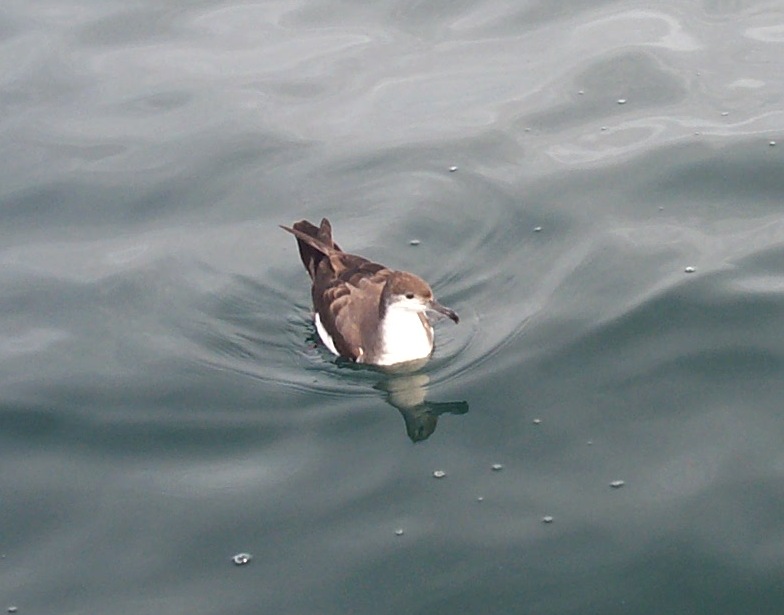|
| Query: Procellariiformes | Result: 109th of 148 | |
Buller's Shearwater (Puffinus bulleri) - Wiki
| Subject: | Buller's Shearwater (Puffinus bulleri) - Wiki
| |

| Resolution: 784x615
File Size: 82784 Bytes
Date: 1999:12:17 04:27:55
Camera: KODAK DC280 ZOOM DIGITAL CAMERA (EASTMAN KODAK COMPANY)
F number: f/6.7
Exposure: 1/125 sec
Focal Length: 126/10
Upload Date: 2007:12:12 18:50:51
|
Buller's Shearwater
From Wikipedia, the free encyclopedia
Order: Procellariiformes
Family: Procellariidae
[Photo] Buller's Shearwater (Puffinus bulleri). Saw at New Zealand seaside while fishing. Source: Flickr (www.flickr.com/photos/kclama/120207902/). Date: December 17, 1999. Author: Charles Lam (www.flickr.com/photos/kclama/).
Buller's Shearwater (Puffinus bulleri) is a species of seabird in the family Procellariidae. The bird is 46-47 cm in size, with a 97-99 cm wingspan. The species is unusually easy to identify at sea (compared to other shearwaters) due to the distinctive M shaped bands across its back, uniquely among its genus and more akin to some Pterodroma gadfly petrels. It is a member of the black-billed wedge-tailed Thyellodroma group, forming a superspecies with the Wedge-tailed Shearwater (Austin, 1996; Austin et al, 2004); these belong to the larger shearwaters of the proposed genus Ardenna (Penhallurick & Wink, 2004).
This species is pelagic, occurring in the Pacific Ocean. It predominantly nests on two offshore islands off New Zealand. It is a transequatorial migrant, moving toward subarctic waters of the Pacific after raising its young. It is fairly common well off the west coast of the United States during late summer and early autumn.
Buller's Shearwater feeds mainly on fish, squid and crustaceans. It does occasionally follow small fishing boats.
This bird nests in burrows, rock crevices or under tree roots, preferring densely forested slopes or cliffs.
In the past, it was heavily used as a food source by the M??ori culture, and has suffered heavy predation by feral pigs. However, the pigs were removed from the breeding islands, and the Shearwater population has recovered. The bird is abundant, with a worldwide population estimated of over 2 million birds, but its breeding sites are limited to 2 islands off the coast of New Zealand, so it is classified as vulnerable.
http://en.wikipedia.org/wiki/Buller's_Shearwater
| The text in this page is based on the copyrighted Wikipedia article shown in above URL. It is used under the GNU Free Documentation License. You may redistribute it, verbatim or modified, providing that you comply with the terms of the GFDL. |
|
^o^
Animal Pictures Archive for smart phones
^o^
|
|

